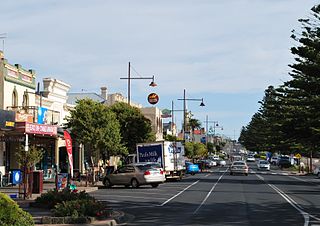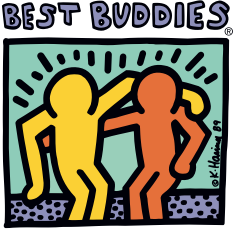Related Research Articles

Portland is a port city in the Pacific Northwest and the largest city in the U.S. state of Oregon. Situated at the confluence of the Willamette and Columbia rivers, Portland is the county seat of Multnomah County, the most populous county in Oregon. As of 2020, Portland had a population of 652,503, making it the 26th-most populated city in the United States, the sixth-most populous on the West Coast, and the second-most populous in the Pacific Northwest, after Seattle. Approximately 2.5 million people live in the Portland metropolitan statistical area (MSA), making it the 25th most populous in the United States. About half of Oregon's population resides within the Portland metropolitan area.

South Portland is a city in Cumberland County, Maine, United States, and is the fourth-largest city in the state, incorporated in 1898. As of the 2020 census, the city population was 26,498. Known for its working waterfront, South Portland is situated on Portland Harbor and overlooks the skyline of Portland and the islands of Casco Bay. Due to South Portland's close proximity to air, marine, rail, and highway transportation options, the city has become a center for retail and industry in the region.

Portland is a city in Victoria, Australia, and is the oldest European settlement in the state. It is also the main urban centre in the Shire of Glenelg and is located on Portland Bay. As of the 2021 census the population was 10,016, increasing from a population of 9,712 taken at the 2016 census.

The disability rights movement is a global social movement that seeks to secure equal opportunities and equal rights for all people with disabilities.
Anthony Paul Kennedy Shriver is an American activist for people with intellectual disabilities. In 1989, he founded Best Buddies International, an international organization that helps people with intellectual disabilities to find employment and social opportunities. Through his mother, he is a nephew of World War II casualty Joseph P. Kennedy Jr., President John F. Kennedy, Senator Robert F. Kennedy, and Senator Ted Kennedy.

Like transportation in the rest of the United States, the primary mode of local transportation in Portland, Oregon is the automobile. Metro, the metropolitan area's regional government, has a regional master plan in which transit-oriented development plays a major role. This approach, part of the new urbanism, promotes mixed-use and high-density development around light rail stops and transit centers, and the investment of the metropolitan area's share of federal tax dollars into multiple modes of transportation. In the United States, this focus is atypical in an era when automobile use led many areas to neglect their core cities in favor of development along interstate highways, in suburbs, and satellite cities.
Portland is "an international pioneer in transit orientated developments."
Developmental disability is a diverse group of chronic conditions, comprising mental or physical impairments that arise before adulthood. Developmental disabilities cause individuals living with them many difficulties in certain areas of life, especially in "language, mobility, learning, self-help, and independent living". Developmental disabilities can be detected early on and persist throughout an individual's lifespan. Developmental disability that affects all areas of a child's development is sometimes referred to as global developmental delay.

Sister Cities International (SCI) is a nonprofit citizen diplomacy network that creates and strengthens partnerships between communities in the United States and those in other countries, particularly through the establishment of "sister cities"—broad, long-term agreements formally recognized by civic leaders. Its mission is to "build global cooperation at the municipal level, promote cultural understanding and stimulate economic development". A total of 1,800 cities, states, and counties are partnered in 138 countries worldwide.
Early childhood intervention (ECI) is a support and educational system for very young children who have been victims of, or who are at high risk for child abuse and/or neglect as well as children who have developmental delays or disabilities. Some states and regions have chosen to focus these services on children with developmental disabilities or delays, but Early Childhood Intervention is not limited to children with these disabilities.
Direct Support Professionals (DSPs) are people who work directly with people with physical disabilities, intellectual disabilities, or developmental disabilities with the aim of assisting the individual to become integrated into his/her community or the least restrictive environment.
The Nordoff–Robbins approach to music therapy is a therapy developed for children with psychological, physical, or developmental disabilities. It developed from the 17-year collaboration of Paul Nordoff and Clive Robbins beginning in 1958, and its early development was influenced by Rudolph Steiner and anthroposophical philosophy and teachings. Nordoff–Robbins music therapy is grounded in the belief that everyone can respond to music, no matter how ill or disabled they are. It holds that music as therapy can enhance communication, support change, and enable people to live more resourcefully and creatively. Nordoff–Robbins music therapists practice worldwide and have graduated from training programs around the world including the United Kingdom, the United States, Australia, Germany, New Zealand, Scotland, South Africa, and the Far East.

Best Buddies International is an American nonprofit 501(c)(3) organization. It consists of volunteers that create opportunities for people with intellectual and developmental disabilities (IDD). The program's main purpose is to allow volunteers to be paired up with a buddy with an intellectual and developmental disability and provide them with a friend or a mentor. Best Buddies is the world's largest organization dedicated to ending the social, physical and economic isolation of the 200 million people with IDD. It is an international movement that has spread to over 54 countries worldwide.

Intellectual disability (ID), also known as general learning disability in the United Kingdom and formerly mental retardation, is a generalized neurodevelopmental disorder characterized by significantly impaired intellectual and adaptive functioning. It is defined by an IQ under 70, in addition to deficits in two or more adaptive behaviors that affect everyday, general living. Intellectual functions are defined under DSM-V as reasoning, problem‑solving, planning, abstract thinking, judgment, academic learning, and learning from instruction and experience, and practical understanding confirmed by both clinical assessment and standardized tests. Adaptive behavior is defined in terms of conceptual, social, and practical skills involving tasks performed by people in their everyday lives.

Vancouver is a city on the north bank of the Columbia River in the U.S. state of Washington, located in Clark County. Incorporated in 1857, Vancouver has a population of 190,915 as of the 2020 census, making it the fourth-largest city in Washington state. Vancouver is the county seat of Clark County and forms part of the Portland-Vancouver metropolitan area, the 25th-largest metropolitan area in the United States. Originally established in 1825 around Fort Vancouver, a fur-trading outpost, the city is located on the Washington–Oregon border along the Columbia River, directly north of Portland, and is considered a suburb of the city along with its surrounding areas.
Emmanuel Serrière is an educator, administrator, and advocate for people with developmental disabilities, researcher on autism.
Disability art or disability arts is any art, theatre, fine arts, film, writing, music or club that takes disability as its theme or whose context relates to disability.
Family support is the support of families with a member with a disability, which may include a child, an adult, or even the parent in the family. In the United States, family support includes "unpaid" or "informal" support by neighbors, families, and friends, "paid services" through specialist agencies providing an array of services termed "family support services", school or parent services for special needs such as respite care, specialized child care or peer companions, or cash subsidies, tax deductions or other financial subsidies. Family support has been extended to different population groups in the US and worldwide. Family support services are currently a "community services and funding" stream in New York and the US which has had variable "application" based on disability groups, administrating agencies, and even, regulatory and legislative intent.
Edwards Center Inc., is a private, nonprofit organization serving adult Oregonians with developmental disabilities with 20 locations in both Washington County and Clackamas Counties.

In 2016, a report from the Department of Housing and Urban Development (HUD) revealed that the U.S. state of Oregon had an estimated homeless population of 13,238 with about 60.5% of these people still unsheltered. In 2017, these numbers were even higher. As of January 2017, Oregon has an estimated 13,953 individuals experiencing homelessness. Of this homeless population, 1,083 are family households, 1,251 are veterans, 1,462 are unaccompanied young adults, and 3,387 are individuals experiencing chronic homelessness.

YAI, previously known as Young Adult Institute, is an organization serving people with Intellectual and developmental disabilities (IDD) in the United States. YAI launched as a pilot program at a small school in Brooklyn, New York, in February 1957. The pilot program was run by co-founders Bert MacLeech and Pearl Maze and served seven people with I/DD. Today, YAI has expanded to a team of over 4,000 employees and supports over 20,000 people in the I/DD community. YAI supports people with Autism, Down syndrome, and Cerebral palsy, among others.
References
- ↑ "The creativity beyond disability". 5 November 2009.
- ↑ "Project Grow creates new options for disabled". www.portlandtribune.com. Archived from the original on 2010-12-21.
- ↑ "Portland State University |". www.pdx.edu. Archived from the original on 2011-07-20.
- ↑ "Project Grow - Port City Development Center". Archived from the original on 2012-11-20. Retrieved 2012-11-11.